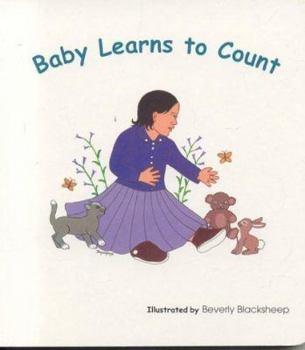Baby Learns to Count/Awee Aneelt'e Yotta Yihoot'aah
(Part of the Baby Book Series, Salina Bookshelf Inc. Series)
Select Format
Select Condition 
Book Overview
Baby has begun to count, and now that she knows how, she can't stop! Baby counts everything from the buttons on her shirt to the birds in the sky. Introduce children to the world of numbers. This description may be from another edition of this product.
Format:Hardcover
Language:English
ISBN:0195105575
ISBN13:9780195105575
Release Date:September 1996
Publisher:Oxford University Press, USA
Length:176 Pages
Weight:0.86 lbs.
Dimensions:0.7" x 5.7" x 8.5"
Related Subjects
Africa Biographical Biographies Biographies & History Biography & History Criticism & Theory Education Education & Reference History History & Criticism International Relations Leaders & Notable People Literature & Fiction Modern (16th-21st Centuries) Nigeria Political Political Science Politics & Government Politics & Social Sciences Schools & Teaching Social Sciences Textbooks West Africa World World LiteratureCustomer Reviews
4 customer ratings | 3 reviews
There are currently no reviews. Be the first to review this work.





















